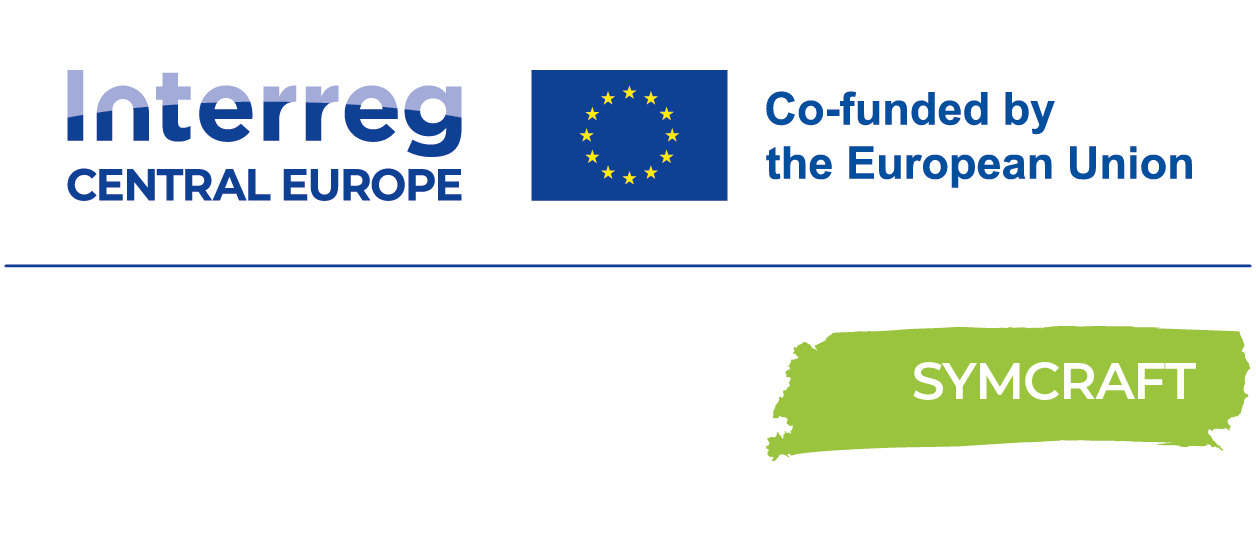SYMCRAFT
Summary
SYMCRAFT responds to the challenge of taking circular economy forward in Central Europe. The overall project objective is to enhance circularity in the region, promoting the role of the craft sector (encompassing craft-based SMEs and broader socially innovative craft practices) as a crucial component for the development of industrial symbiosis, focusing on textile, wood/furniture and agro-food sectors. The main innovative element of the project is the expansion of the notion of symbiosis beyond a strictly industrial dimension to a wider understanding of the social practices and economic processes that make circularity achievable. Approaches to circularity are currently fragmented with medium to large firms adopting rather formalized approaches and smaller production unities going for more spontaneous practices. SYMCRAFT contributes to the evolution of the current situation by showing how the creativity of craft can fertilize industries with inventiveness and socially innovative approaches to circularity. SYMCRAFT promotes the circularity as a strategic opportunity to create relationships between economic sectors that are territorially close but have so far had little opportunities to collaborate. Thanks to this multiplying capacity, the project will therefore benefit various groups: primary beneficiaries will be medium to big sized traditional industries who will discover creative ways to implement circularity as well as small, craft-based firms who will be offered additional and sustainable occasions to develop their business. The social networks craft generate will further expand the benefits of the project to community-based organizations, local government and individual citizens.
Website: https://www.interreg-central.eu/projects/symcraft/
Partnership
Lead partner:
Project partners:
- Ca'Foscari University Foundation (IT)
- South Bohemian Chamber of Commerce (CZ)
- Slovak Chamber of Commerce and Industry (SK)
- West Pannon Regional and Economic Development Public Nonprofit Ltd. (HU)
- Croatian Agency for SMEs, Innovation and Investments (HR)
- Technology Park Ljubljana (SI)
- IAGF – institute for applied research for skilled crafts and trades (AT)
- b&s management consulting and training for rural areas GmbH (DE)
- Leipzig Environmental Institute (DE)
- Association Kultur in der Fabrik (AT)
Facts and information
Programme: Interreg Central Europe Programme
Project duration: June 2024 – November 2026
Total budget: €2,170,074.33
The participation of the Hungarian partner in the project is co-financed by the Hungarian State.

Responsible

Aradszki Zsombor
